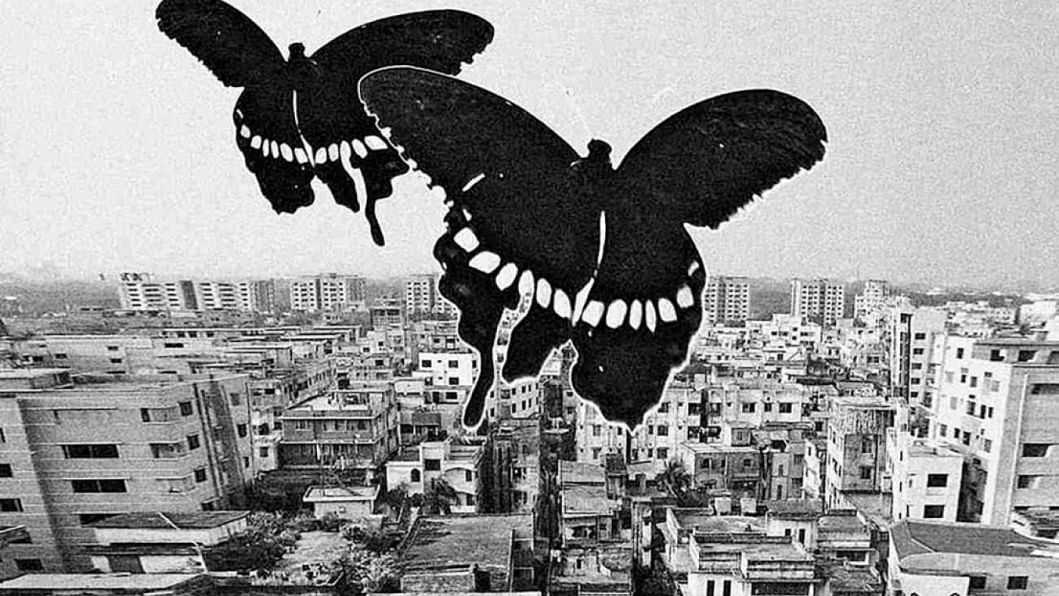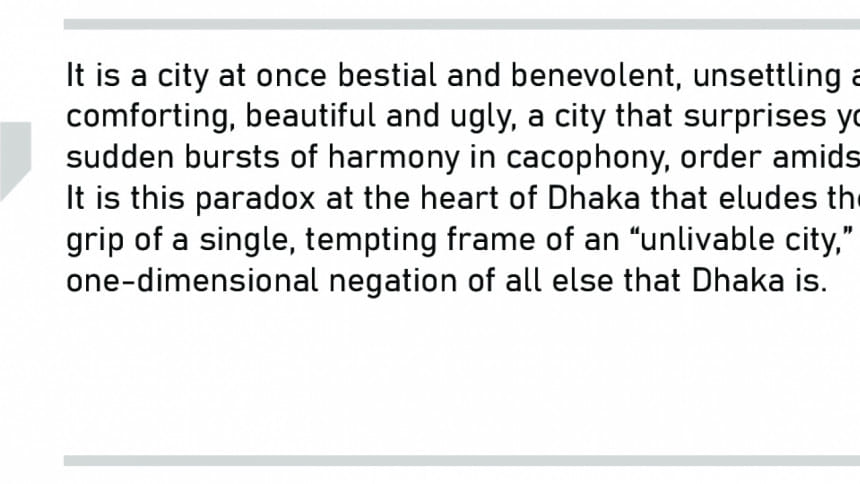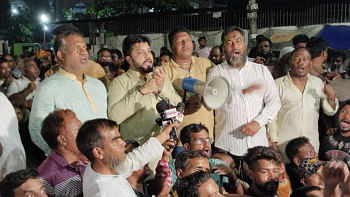A love letter to an unlivable Dhaka

How does it feel to live day in and day out in a city where the air is not only heavy with unhealthy particles but bitter recriminations and even a heavier sense of doom and gloom? How do its dwellers—some fated, hapless souls—brave the city, having to breathe its unhealthy air, navigating their way through the unbearable sadness of being?
If you have ever been to Dhaka, you know how odd this sounds. Dhaka is anything but star-crossed and pensive. It is an incredibly feisty city, always throbbing with energy. Dhaka has a very special place in my heart, and this is my love note to the ever elusive city I grew up in, fall out with and yet eventually come back to.
Let me start with a clarification, notwithstanding my strong emotional strings, I'm not in the least in denial. I proclaim my love for Dhaka neither to invalidate its infamous status in the livability index, nor to counter its unhealthy AQI. On the contrary, these baleful statistics make me come back to what I have been trying to grapple with for the longest time, even more deeply—what it is about the city that both repels and attracts, in short, its magnetic quality. It is a city at once bestial and benevolent, unsettling and comforting, beautiful and ugly, a city that surprises you with sudden bursts of harmony in cacophony, order amidst chaos. It is this paradox at the heart of Dhaka that eludes the tight grip of a single, tempting frame of an "unlivable city," the one-dimensional negation of all else that Dhaka is.
Typologies like megacity, global city, smart city turn the city into an exhibit, a performative site, dynamic but inauthentic, cold at heart. As an exhibit Dhaka may have failed miserably, for it has stepped into the shoes of a megacity by virtue of its huge population, without the adequate support structures. Hence, it is easy to denounce Dhaka as a city gone awry, an urban behemoth, the evil Hyde. "Did you really want to be this?" I wonder. Not everything "mega" needs to be emulated. Some "unloving" is surely in order. Instead of trying to live up to this beguiling ascription that invariably results in the frustration of always falling short, I wish Dhaka could just part ways with the naturalised claim of being mega once and for all and rejoice in its ordinariness and the rare opportunity it provides of encountering the familiar pleasures of small worlds in its crowded streets. If anything, this has become a failed marriage, and Dhaka is doomed to this unhappy togetherness. I cannot but feel you, my dear Dhaka.
I know you are quite a trickster! Take the most recent aggressive invasion of the cityscape by the glaring digital screens hoisted onto every nook and corner, for example. It can easily deceive the uninitiated into believing this to be Dhaka's blind affirmation of "modern" social forms and practices. Take a careful look at those screens blinking away, and see how they alter our spatial experiences like never before, creating a new rhetoric of space. While it lets the mundane buildings assume a magical lustre, liquefying its solid contours and edges, it creates a new, temporary space between reality and fantasy, making them appear and disappear as if with the wave of a magic wand.

Contrary to popular belief, they don't help connect with the city better, or make it any more readable. This well-lit phantasmagoria marks a disconnect with the physical city. It is in these indefinite spaces that Dhaka lets you lose your way, and partake in the pleasures of straying. It is this subversiveness in the supposed conformity that is exciting about Dhaka.
A headstrong city, Dhaka resists all controlling, sanitising attempts that can stop it from being real. In fact, Dhaka is too real to be overlooked. The human touch, albeit wicked at times, is never lost. It is a city where when you install new dustbins, they get stolen piece by piece, a city where everything has a value and is reusable, down to the manhole top, everything can be fixed and nothing goes to waste. There is no escape from its quirky sense of place. You don't choose to enter the city, it slithers in and claims you, but not in a binding way. Like a true, sensible lover, it lets you wander, and wallow in the messier delights it has on offer.
One of the greatest observers of the city, Walter Benjamin, was fascinated by the modern city's capacity to "shock." What still flickers strong in Dhaka is exactly this, its erratic nature. You can't presuppose Dhaka. Even with Google maps, Dhaka will always surprise you. There is a lot more than the anxiety of impending doom that pervades our experience of this "unlivable city." It is the pleasure of leaving the ordinary world behind, and finding these shallow recesses of the extraordinary, where the true magic of the city lies.
Coming back to the weight of the judgment on Dhaka's livability, it is alarming no doubt, but proliferating negative discourses doesn't help. It creates an impasse. You don't go discussing the lethal effects of cancer to a patient who is afflicted by it, simply because this knowledge alone can't help redress the circumstances. If Dhaka were a person, would you do the same? We are too much into grieving over a mythical past that many of us have not even experienced. We have to stop treating the present Dhaka with the nonchalance of a lover on the rebound. This quirky, cool Dhaka deserves your better sense and a lot more love.
Tabassum Zaman is a Dhaka enthusiast who teaches at the University of Liberal Arts
Bangladesh (ULAB).





Comments